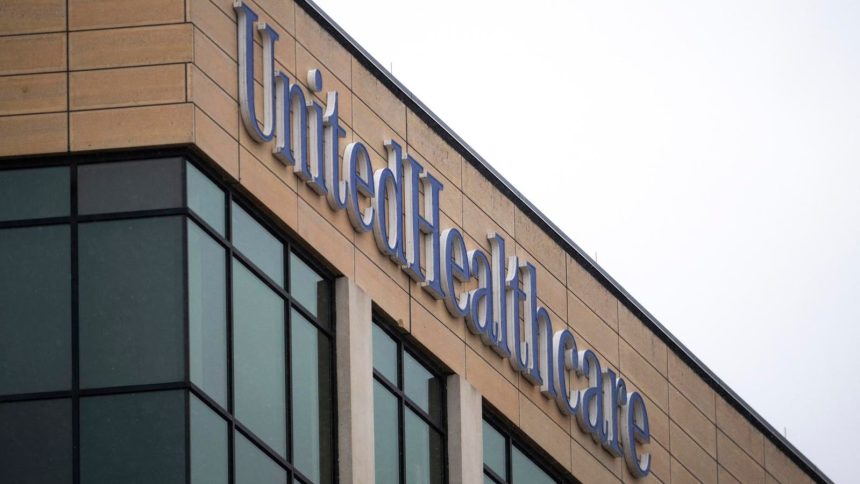The tragic and untimely death of UnitedHealthcare CEO Brian Thompson has sent shockwaves through the health insurance industry, triggering a significant sell-off of health insurance stocks and raising concerns about the future of the sector. UnitedHealth Group (UNH), the parent company of UnitedHealthcare and the nation’s most valuable health insurer, bore the brunt of the market’s reaction, experiencing its worst week on Wall Street since March 2020. The company’s stock plummeted by 10% over the week, shedding a staggering $55 billion in market value. While UNH remains the dominant player in the health insurance market, with a market capitalization five times greater than its nearest competitor, Cigna, the events of the past week have cast a shadow over the entire industry.
The market’s response to Thompson’s death appears to be driven by more than just the loss of a key executive. The circumstances surrounding the killing, including the reportedly inscribed bullets referencing a book critical of insurance claim practices, have fueled a broader discussion about the industry’s approach to claims processing and patient care. This has amplified existing public anxieties regarding health insurance coverage and denial of claims, leading to speculation that the industry may face increased scrutiny and potential regulatory changes. Analysts suggest that the sell-off reflects investor concern about the potential impact of this negative sentiment on the industry’s profitability and future prospects.
The ripples of this sell-off extended beyond UnitedHealth Group, impacting other major players in the health insurance sector. Elevance Health, the parent company of Anthem Blue Cross Blue Shield, saw its stock decline by 6% for the week, reaching its lowest point since 2021. The company also faced specific headwinds related to a recently reversed policy change regarding anesthesia claims processing in three states, further adding to investor unease. Other industry giants like Cigna, Centene, and Humana also experienced declines, with Centene’s stock hitting its lowest price since 2020. This widespread downturn suggests a broader market apprehension about the future of the health insurance industry in the wake of Thompson’s death and the ensuing public discourse.
The absence of a typical catalyst for such a dramatic market reaction, such as poor financial results or legislative changes, underscores the unique nature of this situation. UnitedHealth Group’s recently released guidance for 2025 was in line with Wall Street expectations, further highlighting that the market’s response was primarily driven by the events surrounding Thompson’s death. Analysts have linked the sell-off to the public discussion and speculation about the motives behind the killing, specifically the focus on insurance claim practices. This suggests that the market is pricing in the potential for increased regulatory scrutiny and public pressure on the industry to reform its claims processing procedures.
Industry experts believe that the heightened public scrutiny of insurance practices could force companies to re-evaluate their approach to coverage decisions. The potential for increased regulation or other forms of public pressure, such as consumer boycotts or activism, represents a significant risk to the profitability of health insurance companies. If insurers are compelled to approve more claims or streamline their approval processes, it could impact their bottom line and potentially lead to higher premiums for consumers. The market’s reaction suggests a recognition of this potential shift in the regulatory and public opinion landscape, leading investors to reassess the value of health insurance stocks.
The tragic killing of Brian Thompson has served as a stark reminder of the complex and often contentious relationship between the public and the health insurance industry. While the industry provides essential services, it also faces significant criticism regarding accessibility, affordability, and claims processing practices. The events of the past week have brought these issues into sharper focus, potentially signaling a turning point in how the industry operates and is perceived by the public. The long-term consequences of this incident remain to be seen, but the market’s reaction suggests a growing awareness of the potential for significant changes in the health insurance landscape.



